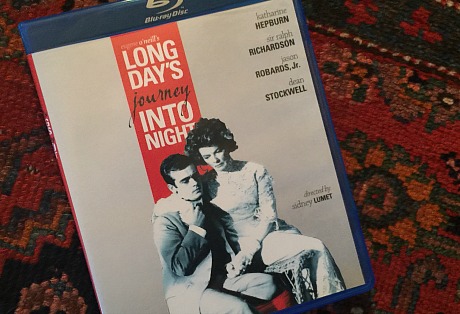It took me three and a half years to watch it, but Olive Films’ Bluray of Sidney Lumet‘s Long Day’s Journey Into Night (’62) is 85% to 90% satisfying from a purely visual standpoint. I only saw about 40 minutes’ worth but it’s clean and crisp enough. It could look a little sharper and more refined here and there, but it’s certainly not a “problem.” I’m looking forward to watching the whole thing next weekend. I was cupping my ears to hear certain portions of the dialogue when I caught the still-running Broadway version in early May. It’s a pleasure to not have to do that in my living room.





